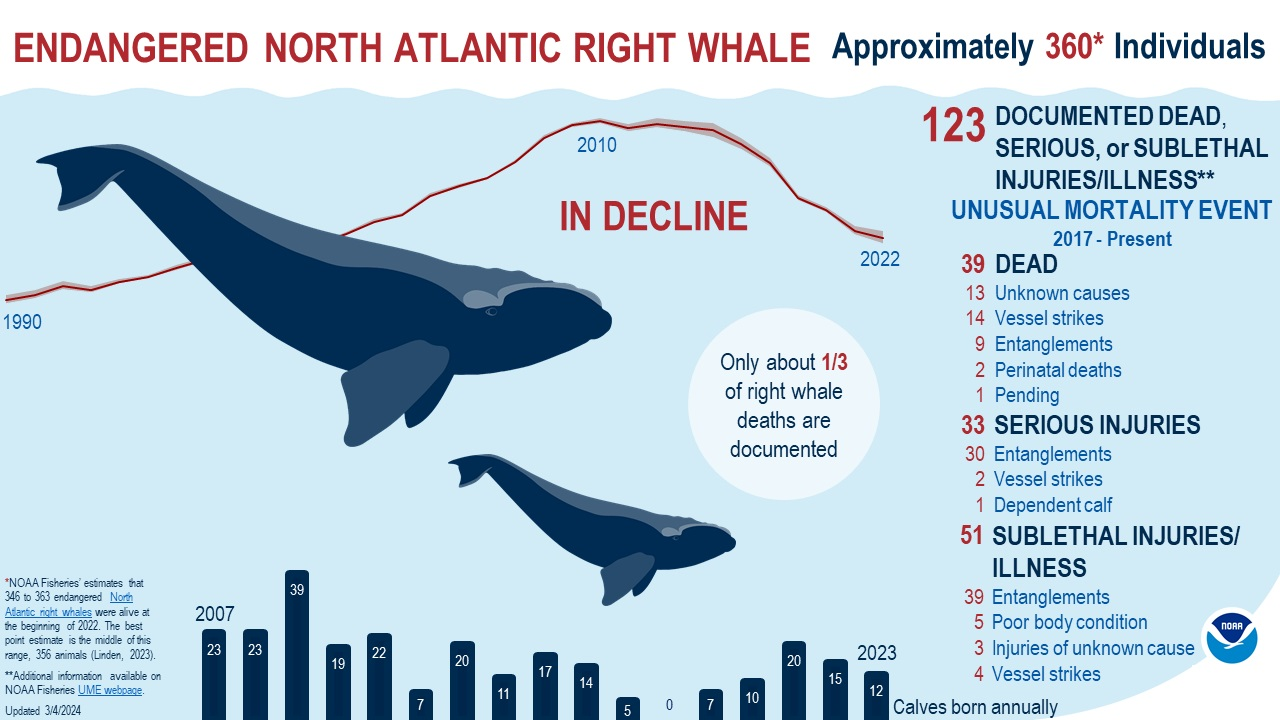North Atlantic Right Whales Show Small but Vital Recovery
Why in the news?
North Atlantic right whales, critically endangered with high risks from human activities, have shown a modest 4% population increase since 2020, marking a hopeful trend after a decade of steep decline and highlighting ongoing conservation efforts.
Slight Population Growth in North Atlantic Right Whales:
- North Atlantic right whale populations have increased by 4% since 2020, following a severe 25% drop from 2010 to 2020.
- These whales migrate seasonally within the North Atlantic, moving to warmer waters in winter and coastal waters in summer for feeding and breeding.
- Right whales are skim feeders, using baleen plates to filter plankton near the water’s surface.
Conservation Status and Protections:
- North Atlantic right whales remain critically endangered, as designated by the IUCN, and are listed on CITES Appendix I.
- The species faces high risks from human activities, including entanglements in fishing gear and ship collisions.
- Conservation efforts focus on minimising these threats to improve survival rates and support population recovery.
Role of the International Whaling Commission (IWC):
- The IWC, based in Washington, D.C., oversees whale conservation through the International Convention for the Regulation of Whaling (1946).
- The commission aims to protect whale species and allow sustainable whaling practices, though North Atlantic right whales are not hunted commercially.
- Conservation actions include monitoring populations, implementing shipping lane adjustments, and establishing protected areas to reduce human impacts on whale habitats.
About North Atlantic right whales:
- Migration: North Atlantic right whales are migratory, moving to warmer waters in winter and heading toward cooler, polar regions in late summer.
- Habitat: These whales inhabit temperate and subpolar waters of the North Atlantic and North Pacific, often found near bays, peninsulas, and shallow coastal areas.
- Distribution: Primarily restricted to coastal waters along the East Coast of theS. and Canada.
- Species: Three right whale species exist globally – Southern (Eubalaena australis), North Atlantic (Eubalaena glacialis), and North Pacific right whales.
- Feeding: Known as skim feeders, they filter plankton near the surface using their baleen plates.
- Conservation Status: Listed as Critically Endangered by the IUCN and on Appendix I of CITES.
Sources Referred:
PIB, The Hindu, Indian Express, Hindustan Times




